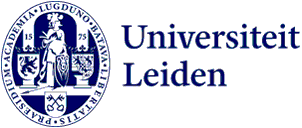
Leiden University publishes the titles of seven tainted scientific articles
In a supplementary decision on 17 May 2022, the Executive Board of Leiden University has concluded that it will publish the titles of seven articles in which there is evidence of malpractice. This concerns a former staff member of the Institute of Psychology. The Executive Board considers it to be in the interest of academic integrity to publish these details.
Serious breaches
The malpractice relates to seven articles in academic journals of which a former staff member of the Institute of Psychology was one of the authors. The malpractice in the articles was discovered at the end of last year after serious breaches of academic integrity had already been identified in 2019
Academic integrity
Six months have passed since the Executive Board submitted a request for withdrawal to the publishers. Now there is no doubt about the malpractice established by the Academic Integrity Committee (CWI), the Board is publishing the titles of the seven articles, with full references (see below). This is in the interest of academic integrity. These articles were previously assessed as red by the CWI. The Board also considers disclosure important for the young researchers who, as whistleblowers, brought these breaches of academic integrity to light at the time. They also have a strong interest in gaining clarity about which articles in scientific journals are or are not tainted.
Clarity
The Board concludes that: ‘Students and young university staff in a subordinate and dependent relationship with the former assistant professor involuntarily became involved in research misconduct.’ The Board also considers it important to provide clarity for the academic community by publishing the titles of the malpractice articles with full references. This will mean that the integrity of other articles will not be in question.
Reassessment
In addition, five articles were reassessed by the CWI in revised advisory opinion to the Executive Board dated 21 April 2022. This has established that one of the 53 articles that were investigated by the CWI in 2020-2021 was wrongly designated as fraudulent. This article does not require any action – e.g. adjustment – by the publisher. In the case of another article, it has been established that the breach of academic integrity is more serious in nature, and that there are therefore grounds for withdrawing the article. The Board will inform the publisher of this article and – as it did previously with the other publishers – first offer the opportunity to complete an internal investigation into this with the authors themselves. The publishers and the authors concerned have been informed.
Authors and journals informed
The CWI carried out this reassessment following responses from the journal and the authors and co-authors involved to the report in November of fifteen tainted articles. Three other articles were also reassessed at the request of authors and journals, but the conclusions remain unchanged. The authors and journals have also been informed.
Further investigation
In 2019, when the first breaches of academic integrity came to light, the Executive Board announced that it would subject all articles by the former staff member to further investigation. This was made more difficult because a large number of (older) datasets could no longer be found. Ultimately, 53 articles were assessed in the follow-up investigation and fifteen of those were found to be tainted. The Executive Board adopted the advice in its conclusion from 17 May 2021 (in Dutch).
The tainted articles are:
The publisher has confirmed that the following five articles will be withdrawn:
1. Sellaro R, Hommel B, de Kwaadsteniet EW, from the SW Group, Colzato L. Increasing interpersonal trust through divergent thinking. Front Psychol 2014; e561 (internal numbering: 89)
Link to publisher will follow.
2. Colzato L, Sellaro R, Samara I, Baas M, Hommel B. Meditation-induced states predict attentional control over time. Conscious Cogn 2015; 37: 57-62 (internal numbering: 97)
Link to publisher will follow.
3. Colzato L, Sellaro R, Samara I, Hommel B. Meditation-induced cognitive control states regulate response-conflict adaptation: Evidence from trial-to-trial adjustments in the Simon task. Conscious Cogn 2015; 35: 110-114 (internal numbering: 98)
Link to publisher will follow.
4. Jongkees B, Sellaro R, Beste C, Nitsche MA, Kühn S, Colzato L. L-Tyrosine administration modulates the effect of transcranial direct current stimulation on working memory in healthy humans. Cortex 2017; 90:103-114 (internal numbering: 154)
Link to publisher will follow.
5. Steenbergen L, Sellaro R, Stock A-K, Beste C, Colzato L. y-Aminobutyric acid (GABA) administration improves action selection processes: A randomised controlled trial. Sci Rep 2015; 5:e12770 (internal numbering: 120)
Link to publisher will follow.
The publisher has confirmed that an internal investigation is being conducted of the following articles:
6. Steenbergen L, Sellaro R, Stock A-K, Verkuil B, Beste C, Colzato L. Transcutaneous vagus nerve stimulation (tVNS) enhances response selection during action cascading processes. Eur Neuropsychopharmacol 2015; 25: 773-778 (internal numbering: 121)
7. Colzato L, Szapora A, Lippelt D, Hommel B. Prior meditation practice modulates performance and strategy use in convergent- and divergent-thinking problems. Mindfulness 2017; 8: 10-16 (internal numbering: 145)
